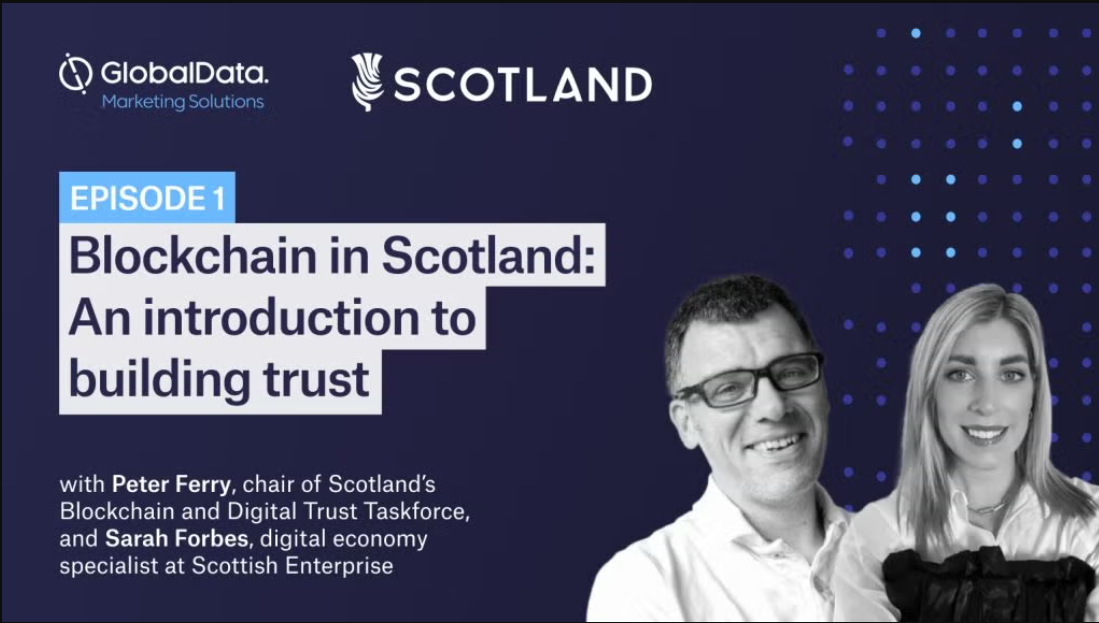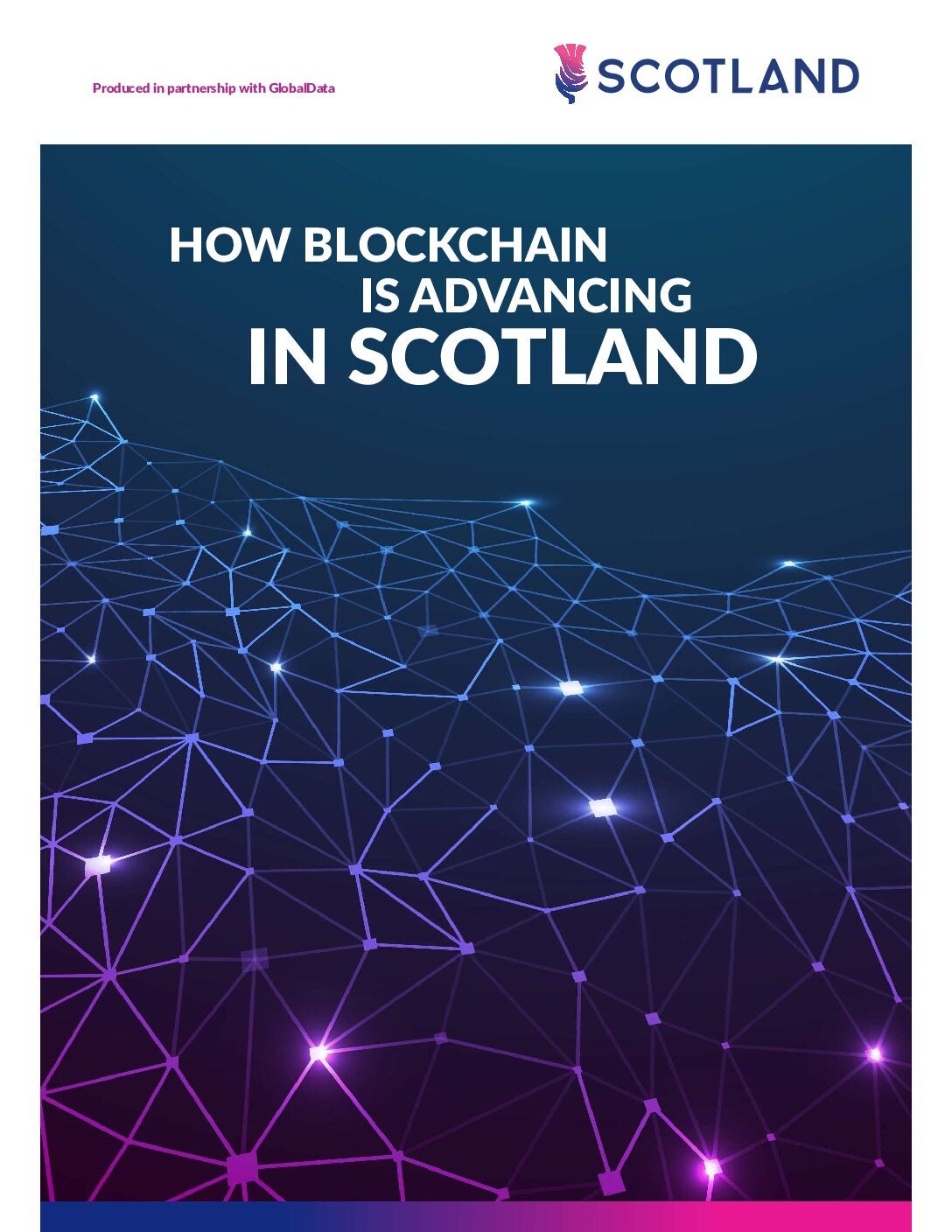
Two episodes have been released in a new podcast series on the uses of blockchain in Scotland. Experts from different industries explain how blockchain technologies are being adopted and trialled across the country.
The series highlights how blockchain could be the future of auditing and enhance transparency across supply chains while putting individuals in greater control of their personal data. Alongside this, listeners will learn how misconceptions around the technology are being addressed.
Episode one examines the importance of building trust in the technology and the initiatives underway in Scotland, while also hearing about the considerable economic benefits. Our guests are Peter Ferry – who chairs Scotland’s Blockchain and Digital Trust Taskforce – and Sarah Forbes – who is a digital economy specialist at Scottish Enterprise. We also learn more about the work of the Blockchain and Digital Trust Taskforce.
“The magic of cryptography is that it allows us to build these platforms that respect personal and business confidentiality while still demonstrating transparency so that people can trust that all parties are operating in the way that’s been agreed,” says Ferry.
Listen to episode one below:
In episode two, we learn more about the ways that blockchain is being used in financial services, evolving from original uses in cryptocurrency to more mainstream applications.
Our guest is James Ball from Nethermind, who leads product development for strategic projects and institutional offerings. Formed in 2017, Nethermind is a blockchain research and engineering company. The company established a Scottish office in 2024 in Edinburgh, with James leading the move.
“[Distributed or decentralized ledger technology] opens up a wealth of new investable assets to investors that maybe were traditionally gated to sophisticated investors or institutions. It unlocks liquidity for previously illiquid or less-than-liquid assets. It creates opportunities for financial institutions to improve capital efficiency across their operations,” says Ball.
Listen to episode two below:





